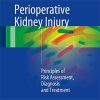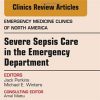Recombinant Thrombomodulin on Neutrophil Extracellular Traps in Murine Intestinal Ischemia-Reperfusion
anesthesiology.pubs.asahq.orgRecombinant thrombomodulin improved the survival of male mice with intestinal ischemia–reperfusion injury.
These findings suggest that histone and neutrophil extracellular trap accumulation exacerbate remote liver injury after intestinal ischemia–reperfusion.
Recombinant thrombomodulin may suppress these accumulations and attenuate liver injury.
Recombinant thrombomodulin yielded statistically significant improvements in survival after 45-min ischemia.
Recombinant thrombomodulin reduced the histologic injury score, expression of tumor necrosis factor-α and keratinocyte-derived chemokine, and extravasation of Evans blue dye, which were augmented by 30-min ischemia–reperfusion, in the liver, but not in the intestine.
Intestinal ischemia was induced in male C57BL/6J mice via clamping of the superior mesenteric artery.
Recombinant thrombomodulin (10 mg/kg) was administered intraperitoneally with the initiation of reperfusion.
The mice were subjected to a survival analysis, histologic injury scoring, quantitative polymerase chain reaction analysis of tumor necrosis factor-α and keratinocyte-derived chemokine expression, Evans blue dye vascular permeability assay, and enzyme-linked immunosorbent assay analysis of histones in the jejunum, liver, lung, and kidney after 30- or 45-min ischemia.

















